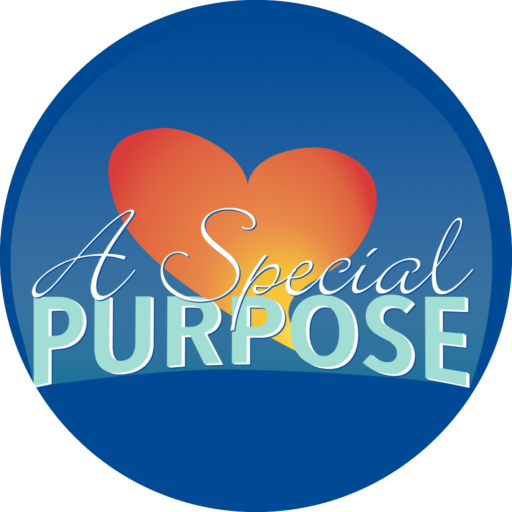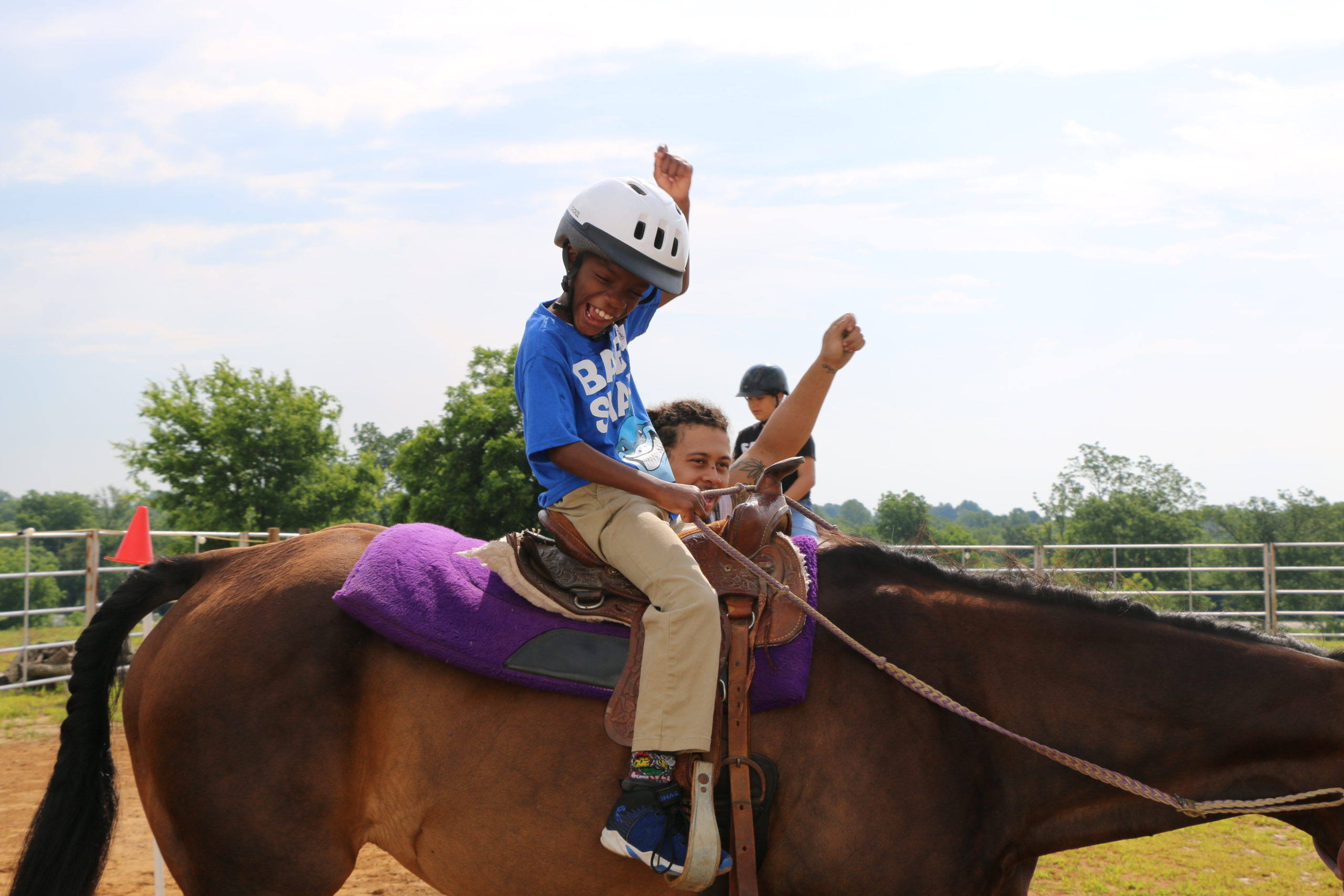I grew up riding horses as soon as I could walk. My grandparents put me in riding lessons when I was six years old and I began show jumping at a young age. My grandparents owned racehorses so I grew up on the racetrack. When my grandparents passed away, I inherited their horses. I was probably nine years old at that time. From then on, I just had to learn the ropes on my own.
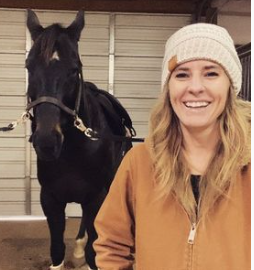
No one else in my family knew about horses or had a passion about them like I did. When I got into high school I began teaching lessons to kids around my neighborhood and family friends. When I went to college, I got a job at a therapeutic riding center and worked there for four years. This is where I began to learn about therapeutic riding and began working towards my certification.
Meanwhile, in college, I was working towards a business degree to be able to run my own business someday. I also received a degree in psychology to learn more about disabilities. My certification is through an organization called Professional Association of Therapeutic Riding (PATH). PATH judged us on our lesson planning skills, riding abilities, how we taught a class, and safety.
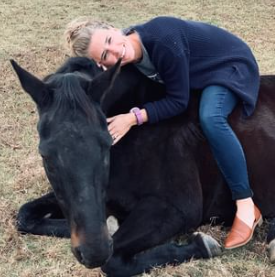
After I graduated college, I moved home and looked for a place to work as an instructor, but the closest barn was nearly an hour away. That’s when I developed Abundant Rein Horse Riding.
Therapeutic horseback riding is designed for riders who have special needs or need additional security when riding. It is an equine-assisted activity for any rider who needs assistance while riding. It is designed to develop individuals in the areas of cognition and the physical, emotional, and social wellbeing of the individual.
Therapeutic riding is different mostly because it involves more one-on-one time with instructors and/or volunteers. Therapeutic riding focuses more on developing their well- being, health, social skills, etc. It provides more support for riders who may not be able to control the horse on their own. It also focuses on core strength and development to promote a healthy and fit lifestyle. Traditional riding allows riders to work more independently and requires less hands-on activity from the instructor. We expect our traditional riders to do things on their own so that they can own a horse of their own some day and care for it properly.
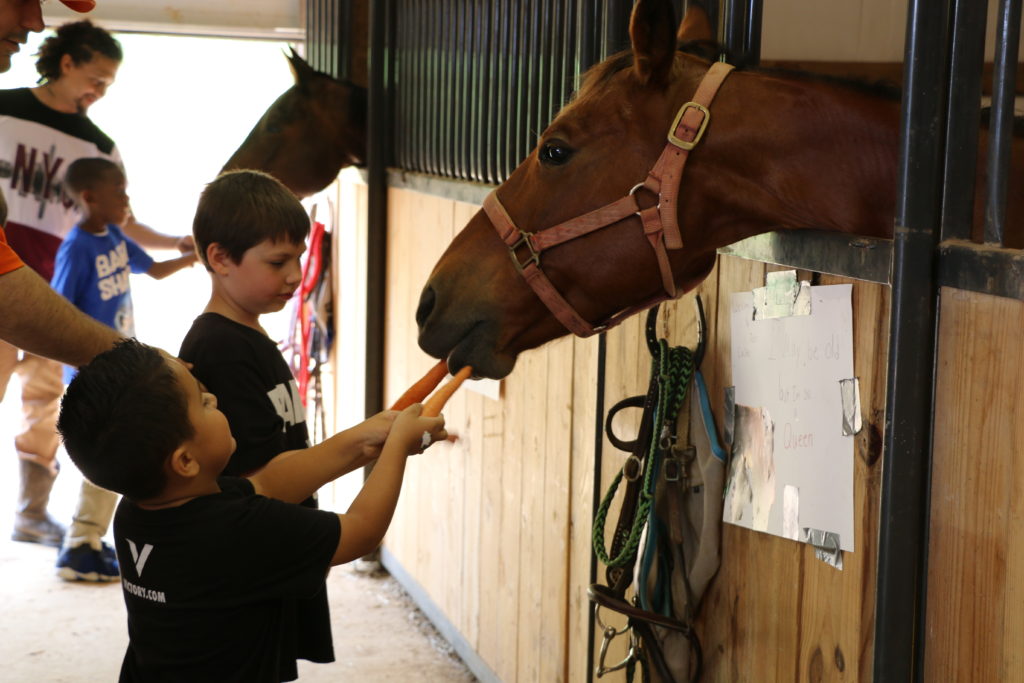
I see several benefits in our therapeutic students. Not only does it make them happy and boost their emotions, but it also allows them to have social interaction with the other riders and helpers. It allows them to exercise their core muscles and makes them stronger. The physical exercise they get alone is a huge benefit for our therapy riders. I have seen riders who cannot sit up without assistance develop a strong enough core to sit up and ride their horse. These experiences impact so many individuals’ lives for the better.
Giving lessons keeps me humble. The riders are so happy to be on the back of a horse or to simply feed him a treat. It takes me back to my childhood, being a horse-crazy girl, who just loved the sense of being with a horse. Horses are so understanding of our emotions. Whether you are verbal, non-verbal, the horse knows your heart. Our students enjoy that weekly and that joy is all over their face. The happiness they express is the best impact I experience as their instructor.
This is my ministry. God gave me gifts and talents to work with horses and to work with people to understand horses. The Bible tells us in 1 Peter 4:10 that God gives us gifts and that we should use those gifts to serve one another. My hope is that all students receive some sort of therapy through this ministry. Whether it is physical, emotional, mental or spiritual. I hope that they see God in me and find their way to love Him and thank Him for the dreams that become a reality on the back of a horse.
Volunteers love spending time with the kids and horses just like the riders do. For them, they get to get outside and give back to an organization and a cause they believe in. I find that each volunteer has a story of their own which brings them out to support our cause. However, each story usually has a similar ending which leaves them saying that they are amazed when they see an individual with a disability do the impossible. The benefits our volunteers experience first hand is so moving to them. We always say “amazing things can and do happen on the back of a horse,” and that is exactly what they love about this experience.
An experience that has and will always stand out to me was back when I was going through my training hours to get certified in college. We had a girl who was about seven years old in a wheelchair. She was non-verbal and she could not walk without assistance. Every weekday, I went to our classroom to get her. I would lift her to her feet and stand in front of her encouraging her to step forward. She knew that her pony was just steps away and if she wanted to ride that pony, she had to try. Months and months went by. She probably had 20 feet of ground to cover and we had only made it one or two steps before she would be too tired to continue on. From that point, I would carry her to the arena and put her on her pony. She would often get so tired even sitting on her pony because she spent most of her time in a chair with back support that sitting on the pony required so much of her core muscles. She never wanted to get off that pony no matter how tired she got. Sometimes we would spend half our lesson parked off to one side of the arena while she would lie upon her pony’s neck and just feel her coat and pet her. As time progressed, she got stronger. Two steps turned to four, four to six and by the end of the year, I went to get her and she walked into the arena, holding my hands and got on her pony and rode for an entire 30 minutes sitting up with only a thigh hold for support. She now is able to move around with a walker and even go short distances with no assistance. Her love for her pony and her determination to never give up inspired me forever, and from that moment on, I knew, this is where I am called to be.
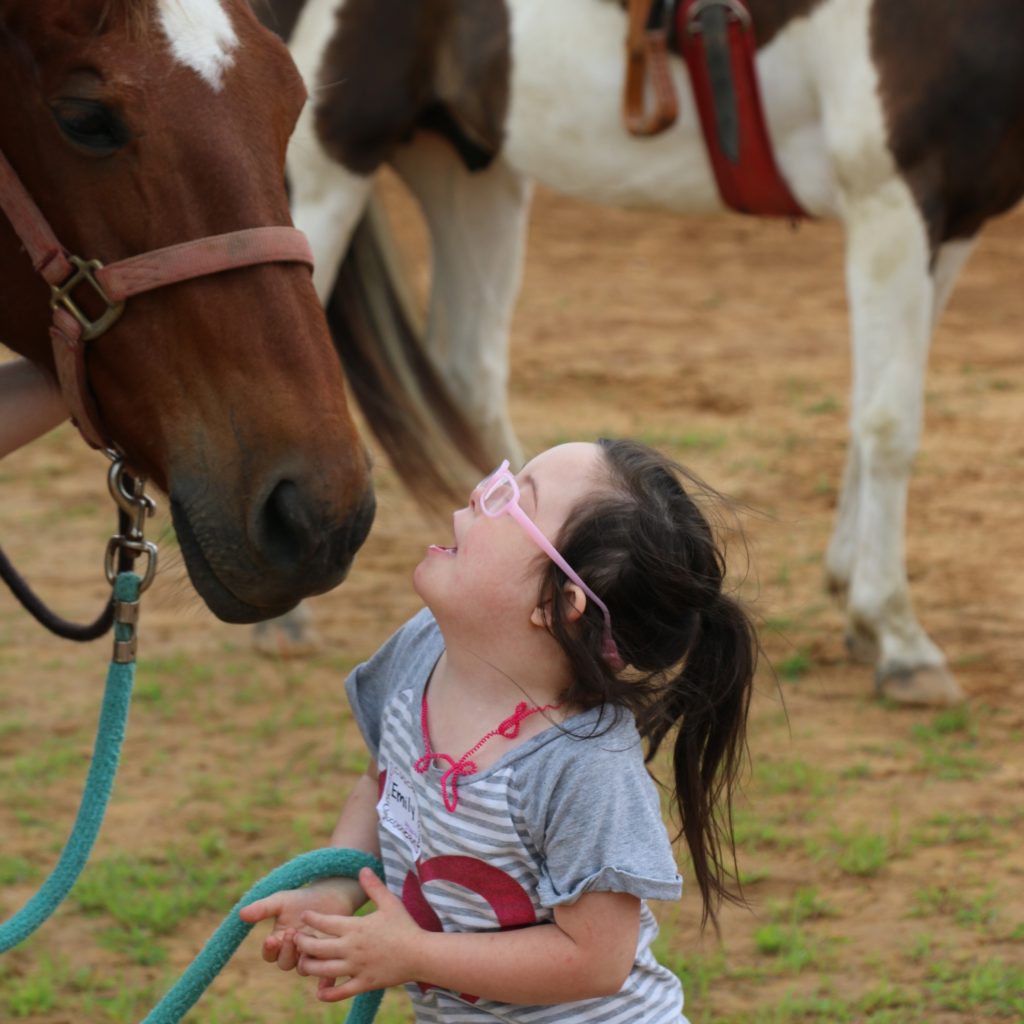
We offer several different lesson options in our ministry. Parents need to know what their child’s goals are and what they hope to accomplish with their riding. Our instructors are happy to help guide parents and riders along the way if they are unsure exactly where they want to end up in the long run. Once a specific class has been decided for that rider, parents will complete our paperwork packet and then a scheduled lesson can take place. We also offer trial lessons so riders can come get a feel for everything before they commit to signing up.
Parents can email us through our website at www.abundantrain.net. We also receive several messages through our FB and Instagram page: AR Horse Riding.
